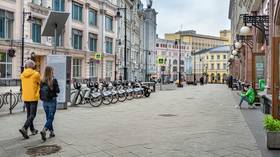The rise of new media over the old
The news media has changed drastically over the past few decades. While newspapers and network television used to dominate the news cycle, these traditional forms of media are fading out.
Now, we are seeing a shift to Internet news and people using different forms of social media to get their information.
“It used to be that you would wait for your daily newspaper or the 6pm news, that’s no longer the case,” said Professor Mark Feldstein from George Washington University in Washington, DC. “With the internet, with Twitter, with social networking, you now can get that stuff instantly.”
However, the focus on getting news out instantly may jeopardize how people understand important issues covered in the news, argue some.
News media of today must learn to adapt to changing technologies in order to engage the public in in-depth media coverage. The future is uncertain, but one thing is certain. The demand for knowledge will never die.
Liz Stephans, the co-founder of Breitbart.tv and the host of The B-Cast said that the majority of news consumers see traditional media sources as biased. They turn to the web to see voices and views they are not seeing in old or tradition media.
“The rise of social media and recommendation engines such as Facebook, Digg, Twitter, really has given people a way to look to people they respect and whose news judgment they value to say I know there’s a lot of stuff out there I saw this, I recommend you take the time, because people don’t have enough time to stare at their feed readers for 20 hours a day and look at every single piece of information that’s coming across an RSS feed. So, I think the rise of the social media really has been a huge component in making new media as big and powerful as it’s become,” said Stephans.
Stephans further argued that a large number of bloggers and new media voices work to hold one another accountable online, and as new media grows this will further develop, allowing new media to grow in accuracy and credibility. New media is not the death of media, but the evolution of it moving forward.












